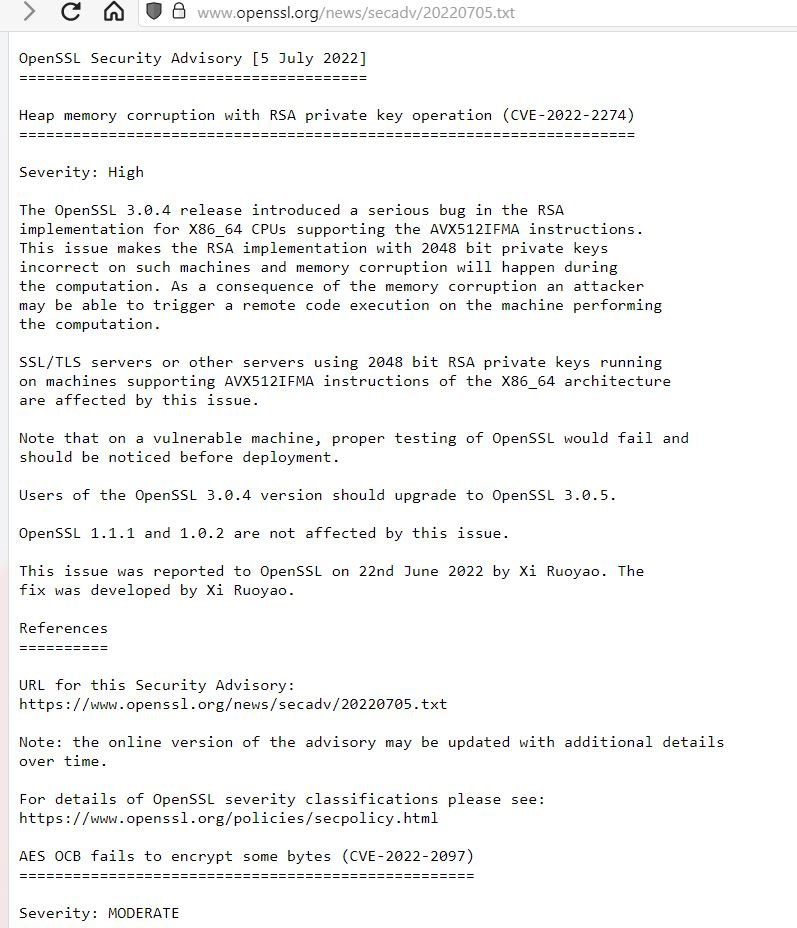OpenSSL is a famous cryptography library that provides an open source implementation of the Secure Sockets Layer (SSL) and Transport Layer Security (TLS) protocols. It allows generating RSA private keys and performing encryption and decryption.
A critical vulnerability in OpenSSL could allow a threat actor to achieve remote code execution (RCE) on server-side devices.

Heap memory corruption with RSA private key operation (CVE-2022-2274)
The OpenSSL 3.0.4 release introduced a serious bug in the RSA implementation for X86_64 CPUs supporting the AVX512IFMA instructions.
This issue makes the RSA implementation with 2048 bit private keys incorrect on such machines and memory corruption will happen during the computation. As a consequence of the memory corruption an attacker may be able to trigger a remote code execution on the machine performing the computation.
SSL/TLS servers or other servers using 2048 bit RSA private keys running on machines supporting AVX512IFMA instructions of the X86_64 architecture are affected by this issue.
Note that on a vulnerable machine, proper testing of OpenSSL would fail and should be noticed before deployment.
MITIGATION
Users of the OpenSSL 3.0.4 version should upgrade to OpenSSL 3.0.5.
OpenSSL 1.1.1 and 1.0.2 are not affected by this issue.
This issue was reported to OpenSSL on 22nd June 2022 by Xi Ruoyao. The fix was developed by Xi Ruoyao.

Cyber Security Specialist with 18+ years of industry experience . Worked on the projects with AT&T, Citrix, Google, Conexant, IPolicy Networks (Tech Mahindra) and HFCL. Constantly keeping world update on the happening in Cyber Security Area.










